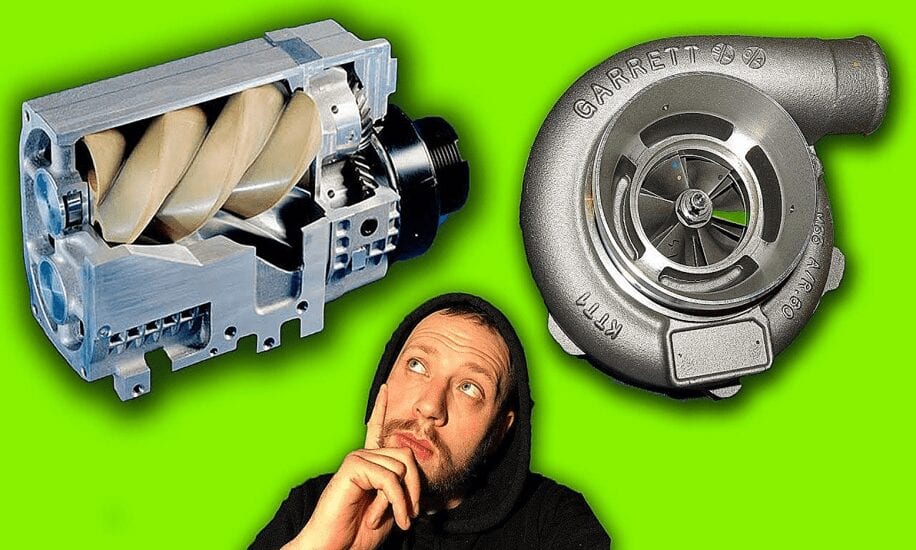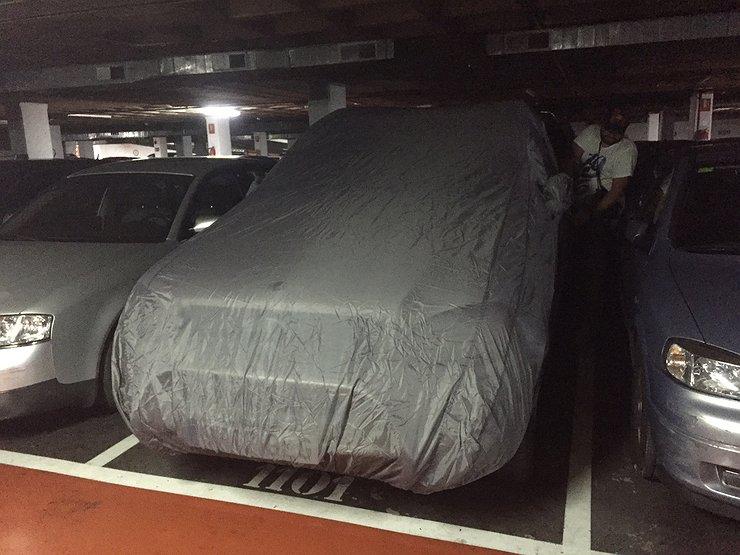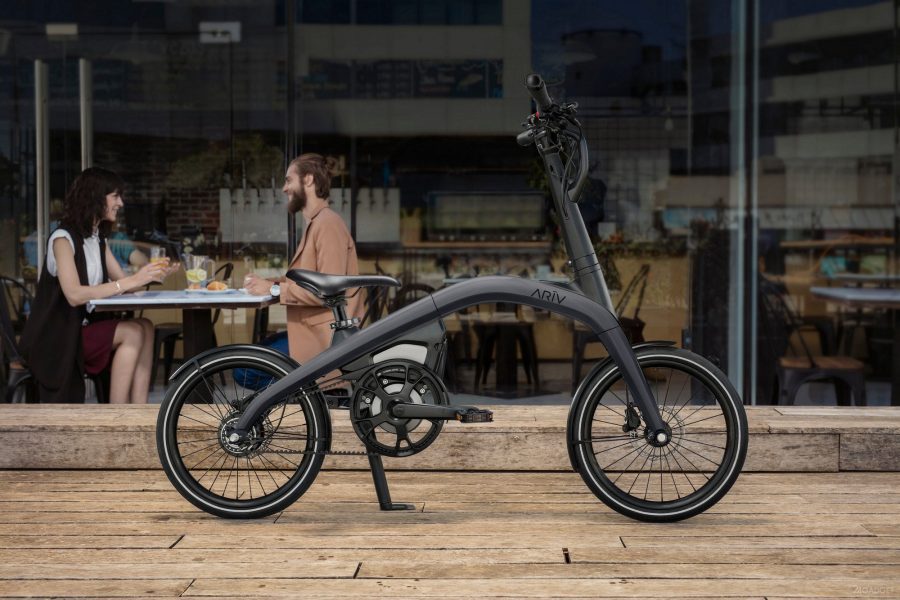
What is the difference between a turbo and a compressor?
Content
If you want to increase the engine power of your car, then you are probably wondering if you should bet on a compressor or turbo.
We would be very happy if we could give you a definite and definite answer which of the two systems to choose, but the truth is that it does not exist, and the debate on this issue has been going on for years and is still very relevant not only in our country but also around the world.
TURBO AND COMPRESSOR
Therefore, we will not take part in the debate, but we will try to present both mechanical systems to you completely impartially, and we will leave a decision on which one to rely on you.
Let's start with the similarities
Both turbochargers and compressors are called forced induction systems. They are called so because both systems are designed to increase engine performance by pumping the combustion chamber with air.
Both systems compress the air entering the engine. Thus, more air enters the combustion chamber of the engine, which in practice leads to an increase in engine power.
What is the difference between a turbocharger and a compressor?
Although they have the same purpose, the compressor and turbocharger differ both in design and in location, and in the way they work.
Let's understand what a compressor is and what are its pros and cons
Simply put, a compressor is a type of fairly simple mechanical device that compresses the air that enters the combustion chamber of a vehicle’s engine. The device is driven by the engine itself, and power is transmitted by a friction belt attached to the crankshaft.
The energy generated by the drive is used by the compressor to compress the air and then supply compressed air to the engine. This is done using the intake manifold.
Compressors that are used to increase engine power are divided into three main types:
- centrifugal
- rotary
- screw
We will not pay particular attention to the types of compressors, we only note that the type of compressor systems can be used to determine the pressure requirements and available space for installation.
Compressor benefits
- Efficient air injection that increases power from 10 to 30%
- Very robust and sturdy construction that often exceeds the engine life of the machine
- This does not affect the operation of the engine, since the compressor is a fully autonomous device, although it is close to it.
- During its operation, the operating temperature does not increase sharply
- Does not use a lot of oil and does not require constant topping
- Low maintenance
- It can be installed at home by an amateur mechanic.
- There is no so-called "lag" or "pit". This means that power can be increased instantly (without any delay) as soon as the compressor is driven by the engine's crankshaft.
- Effectively works even at low speeds
Cons of the compressor
Low productivity. Since the compressor is driven by a belt from the engine crankshaft, its performance is directly dependent on speed
What is a turbo and what are its pros and cons?
The turbocharger, as we noted at the beginning, performs the same function as the compressor. However, unlike a compressor, a turbocharger is a slightly more complex device consisting of a turbine and a compressor. Another important difference between the two forced induction systems is that although the compressor receives energy from the engine, the turbocharger receives its power from the exhaust gases.
The operation of the turbine is relatively simple: when the engine is running, as already mentioned, gases are released, which instead are released directly into the atmosphere, pass through a special channel and set the turbine in motion. He, in turn, compresses the air and feeds it into the combustion chamber of the engine to increase its power.
Turbo pros
- High performance, which can be several times higher than compressor performance
- Uses exhaust energy
Cons turbo
- Effectively works only at high speeds.
- There is a so-called “turbo-delay” or a delay between pressing the accelerator pedal and the time for increasing engine power.
- It has a short service life (at best, with good service, it can travel up to 200 km.)
- Since it uses engine oil to lower the operating temperature, the oil changes 30–40% more than in a compressor engine.
- High oil consumption, which requires much more frequent refilling
- Its repairs and maintenance are quite expensive.
- In order to be installed, it is necessary to visit a service center, since the installation is quite complicated, and it is almost impossible to do this in a home garage by an unqualified mechanic.
- To get an even clearer picture of the difference between a compressor and a turbocharger, let's make a quick comparison between the two devices.
Turbo vs compressor
Drive method
The compressor is driven by the crankshaft of the vehicle engine, and the turbocharger is driven by the generated energy of the exhaust gases.
Drive delay
There is no delay with the compressor. Its power is directly proportional to the power of the engine. There is a delay in the turbo or the so-called “turbo delay”. Since the turbine is driven by exhaust gases, full rotation is required before it begins to inject air.
Engine power consumption
The compressor consumes up to 30% of engine power. Turbo power consumption is zero or minimum.
Mind
The operation of the turbine depends on the speed of the car, while the compressor has a fixed power and does not depend on the speed of the car.
Fuel consumption
Compressor operation increases fuel consumption, while turbocharger operation reduces it.
Oil consumption
To reduce the operating temperature, the turbocharger needs a lot of oil (one liter for every 100 km). The compressor does not need oil because it does not generate high operating temperatures.
Performance
The compressor is less efficient because it requires additional power. A turbocharger is more efficient because it receives energy from exhaust gases.
Engines
Compressors are suitable for engines with a smaller displacement, and turbines are more suitable for automobile engines with a large displacement.
Service
Turbo requires frequent and more expensive maintenance, while compressors do not.
Price
The price of a compressor depends on its type, while the price of a turbo depends mainly on the engine.
Installation
Compressors are simple devices and can be installed in a home garage, while installing a turbocharger requires not only more time, but also special knowledge. Therefore, the installation of the turbo must be performed by an authorized service center.

Turbo or compressor - the best choice?
As we noted at the beginning, no one can tell you the correct answer to this question. You can make sure that both devices have both advantages and disadvantages. Therefore, choosing a forced induction system, you should be guided mainly by what effect you want to achieve during installation.
For example, compressors prefer more drivers who do not seek to significantly increase engine power. If you are not looking for this, but just want to increase power by about 10%, if you are looking for a device that does not require much maintenance and is easy to install, then perhaps the best choice for you would be installing a compressor. Compressor maintenance and maintenance are cheaper, but if you focus on this type of device, you will have to prepare for increased fuel consumption, which is definitely waiting for you.
However, if you love high speeds and racing and are looking for a way to increase the power of your engine up to 30-40%, then the turbine is your powerful and very productive unit. In this case, however, you should be prepared to have your turbocharger checked frequently, spend more money on costly repairs, and add oil regularly.
Questions and answers:
What is more efficient than a compressor or a turbine? The turbine adds power to the motor, but it has a certain delay: it works only at a certain speed. The compressor has an independent drive, therefore it comes into operation immediately after starting the motor.
What is the difference between a blower and a compressor? The supercharger, or turbine, is powered by the force of the exhaust gas flow (they spin the impeller). The compressor has a permanent drive connected to the crankshaft.
How much horsepower does the turbine add? It depends on the features of the turbine design. For example, in Formula 1 cars, the turbine increases the engine power up to 300 hp.


4 comment
Roland Monello
Isn't "turbine" an incorrect term for "turbo"?
In my opinion, a turbine is different from a turbo. A turbine was used in the 500 Indy 1967, for example, and almost won, but that was a turbine, not a turbo. Kind regards, Rolando Monello, Bern, Switzerland
Philippe
Very interesting explanation, thank you
anonym
The first turbo works at low speeds and they also depend entirely on speed and not speed.
2. Turbos also do not use 1l every 100 km, that would be completely absurd. yes they use more but this is not right.
3.I am 16 years old and have no trade certificate but I can install a turbo. it all depends on how car you are going to install the turbo on. yes it is difficult to install a turbo on a 2010 Volvo v70 but if we are talking about a 1980s Volvo 740 it is very easy.
4.you talk so much about speed when it has nothing to do when both are about speed and not speed.
This article is full of gaps and does not talk enough about the specifications of each car. it is clear that you have no particular knowledge on this topic. what you end up with is sending the wrong information to people who do not know better. laugh more about the topic before writing an entire article on it.
anonym
It has a short service life (at best, with good service, it can travel up to 200 km.)
What ?!